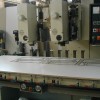It's Supernova Time
For those who are interested:
"Astronomers have spotted the closest supernova in a generation -- and in a week or so, stargazers with a good pair of binoculars might be able to see it, too. The supernova, or exploded star, flared up Tuesday night (Aug. 23) in the Pinwheel Galaxy, just 21 million light-years from Earth. It's the closest star explosion of its type observed since 1986, and astronomers around the world are already scrambling ...":
http://news.yahoo.com/closest-supernova … 02895.html
Could be really interesting.May be in 21 years, a supernova will have nothing to do about it.
There were so many mass extinctions on earth and none was related to any supernova...
The most probable cause was a break in food chain and in our artificial economy food is more precarious as it is another commodity , which could not be produced in excess, and accessibility depends on employment.In simple words, ECONOMICS.
In natural economy, usually food is abundant. And as evolution progresses all species becomes highly specialized, that is there food choice decreases, but become more and more adept in getting the food. So if anything happens to the lowest of the food chain, the whole thing collapses including the top predator(Just suppose, if you don't get your usual diet, will you try grass to sustain yourself? The top predators of the yore were also had a similar choice).For the lowest one to collapse, it need minor climate/atmospheric changes only.
The mass extinctions might have been due to the collapse of these food chains, as other organisms survived. If it was due to supernova/asteroid/volcano the collapse would have been indiscriminate.
For humans, the economy is artificial. Food is just another commodity. We cannot have food abundance as it will decrease the price(remember the recent dumping of grains). We are not individual food producers as in natural economy, so we have to depend on our job, to get money, to get food. Our economy is a debt laden economy. It works on the principle that demand always increases.Our technology is progressing day by day and displacing more and more humans from their jobs. When people cannot afford to buy demand decreases. When demand decreases, more lay offs happen which further aggravates the situation. In addition population will start to decrease as people are getting more and more urbanized, which will also decrease demand. As jobs decreases less and less people will be able to procure food, the demand of food decreases, which will take away the incentive of companies to produce food.
There is a limit to the unemployment the world can sustain. After that there will be total collapse of economy, which will in turn cause a collapse of human species.Jomine,
The economy wont cause mass extinction..........It has nothing to do with that. People will still produce food and yes eat.
I take it that you havent traveled to countries whose economies are developing. There are many poor people and a hand full of wealthy people. You go to the third world and there are many people who are starving. At worst case scenario, that is a an economic model that we may see. People on the lower end will be scrapping by and humans can survive on very little food. You would be amazed.
That could in the worse case scenario be a likelyhood for many countries that are developed like Europe or the US. Supply and demand basically only predicts wealth. It does not predict life. If the economy goes blooey, people (in the worst case scenario) will grow their own food.
Maybe there will be wars. Who knows. People thought this way a couple of decades ago with the depletion of oil there were movies like "Mad Max". You see this has been going on for many years. Actually, the bad economy has been going on for decades now. The eoonomy's broadest measure does not show the average person. It is more a measure of affluence. In the past decade, this affluence has been artificial.
Technology as it relates to automation has actually moved backwards. As far as manufacturing is concerned, the sheer volume of the output of todays machines are far less. Take a look at mechanical screw machines Acme, Brown and Sharp. A cnc or computerized turning center cant match the output of one of these machines. What it does, though, is it allows smaller batches of parts to be manufactured in shorter periods of time so it is important. Technology is not really replacing the worker. In many cases it is creating new jobs. A cnc requires an operator as well as a programer. In the past, a machinist could work at a machine by themselves. For smaller batches, the cnc is far more efficient but it didnt replace workers.
If you ever get a chance, go to Bacolod in the Philippines. You will see tractors rusting on the side of the road with people toiling working sugar cane fields that are aproximately a couple hectres each. Technology has actually been shunned there. There are reasons for this that I wont go into right now but lets just suffice to say....
People will do what the need to survive. Yes the economy is artificial. It's broader measure will not affect everyone. A bad economy may create a bad situation for some people and more hunger, etc. Despite that people will find a way to eat. A nuclear war could potentially cause a mass extinction (but there will likely be survivors) or another natural catastrophe could cause mass extinction. The economy, however, is just a by-product of our social aspirations. When it fails,it will change and people will adapt to the change.Thank you for your explanation Ben Evans.
I'm sorry, I was too brief. I agree to most of your points but disagree to some.
First, I have been to one of the poorest regions of India, where I saw people who couldn't get even one meal a day.
In these parts, I agree, people wouldn't be affected much by a collapse of economy.......But times are changing, the three Years I worked there, there was much change, people are changing more and more from subsistence farming to manufacturing to service industry. And today the world is globalized, any change anywhere affect everybody. The recent Greek(which is just a fraction of world economy) crisis shows that a minor change has global effects and the poorest nations are no exception.
Now technology. In manufacturing industry itself, the better the technology, the less people need to work it. Yes I agree though it displaces more menial workers it take in more supervisors, but the present companies, to increase the production, do not have to increase man power as in olden times. And in service sector like banks, a single bank can service a 1000-1 million people without significantly increasing man power. And the majority in the world are in service sector. Agriculture and manufacturing together form only a few percentage of GDP of developed nations. The developing nations are also following that trend. So as technology overtakes, there will be few human jobs left. Also technology is also on a dead end. No new major developments in manufacturing technology is taking place to create jobs. All what is happening is just some cosmetic rearrangements.
Now the third scenario is our population is shifting from rural to urban areas. And in urban areas, population is increasing more by immigration than any increase in birth rate, rather in urban areas more and more people opt the single child norm, even bachelorhood. The projected ZPG(0 population growth) of India and China is by this mid century. That means population growth stops by mid-century.The markets ill be saturated before that and unemployment and such problems will occur before that. I'm not talking about unemployment like the present day, but in billions in a short span of time.
Where will all these urban people going to produce food? Even if they want to produce food, do they know anything about agriculture? In such scenario where billions are hungry, the only thing with any value will be food, as it will be the natural economy not the artificial one in work then. More than half the population will turn hungry. Hungry people will no longer be gentle folks. They will have to steal or kill to feed themselves. If those who make food cannot eat it,as more people are out there to steal or wrench it out of them, who will harvest then?
That will be how human species end, as the only survivors will be the ones who will be able to steal or wrench it out of the poor better, but they might not be the best farmers and hence they too will perish along with the last farmer.
your title made me start singing --
'someday you will find me caught beneath the landslide in a champagne supernova in the sky...'
http://www.youtube.com/watch?v=-cJauX_q6wIIt is time...

"BERKELEY -- A dying star that exploded 21 million years ago in a cataclysmic burst of energy called a supernova has sent its light streaming across the cosmos, leaving a pinpoint of light in the sky that Bay Area residents with a good pair of binoculars should be able to see over the next couple of weeks."
http://www.sfgate.com/cgi-bin/article.c … 1L0P5I.DTL
Related Discussions
- 64
Just The Numbers
by Willowarbor 7 months ago
The economy is big, complex and difficult for most people to understand. In reality, the president may not have as much control over the economy as people tend to think. The Federal Reserve, for instance, has a much more direct influence over how well the economy does. I've read a lot of...
- 68
Controversial CBO Report - Last step into Political Bizzaro World
by ga anderson 12 years ago
The gist of the new Congressional Budget Office, (CBO), report on the effects of Obamacare on the U.S. economy is that it will cause a reduction in works hours equivalent to about 2 million jobs by 2017.Here is just one link from a Washington Post story: http://www.washingtonpost.com/blogs/plu...
- 16
Global riots, what's your take?
by jomine 13 years ago
Economists like Richard Duncan and Peter Schiff are predicting a global economic collapse. They are predicting unemployment, street fights and riots in a massive scale, at least in America, and the death of more than half of world population in 3-4 years. What do you think? How will you prepare if...
- 34
Don't Give Trump Credit for the Success of the Biden Economy
by Willowarbor 14 months ago
Trump will inherit "the strongest economy in modern history," "an economy primed for growth," "booming markets and solid growth," an economy that is "pretty damn good," and investments "flowing" to "rural and manufacturing communities."In...
- 159
Your suggestions for Fixing the Economy
by Jiberish 16 years ago
http://www.washingtonpost.com/wp-dyn/co … 01900.htmlIn this Washington Post article it says that two-thirds of the stimulus went toward tax cuts, fiscal aid to states, and expanded unemployment benefits and food stamps. The stimulus also went to the $3 billion in National Science Foundation...
- 37
Joseph Stiglitz - reknowned economist - thinks technology is evil
by Evan G Rogers 14 years ago
Evan Rogers here with another breaking story about how we're all doomed because our leading economists are all bozos.Here's Joseph Stiglitz making the case that technology causes unemployment, and was a major factor in the Great Depression.http://www.vanityfair.com/politics/2012 …...











